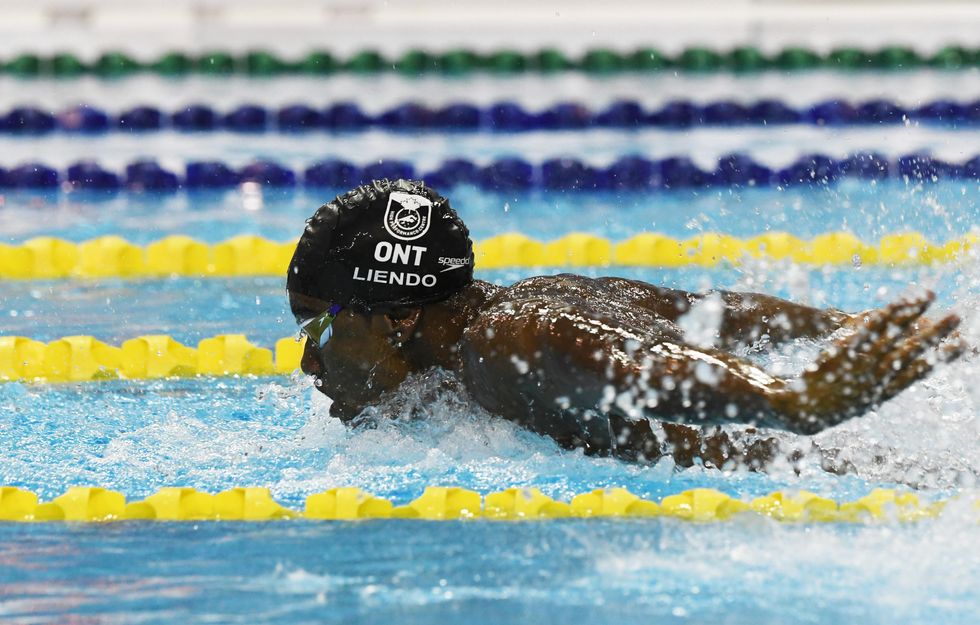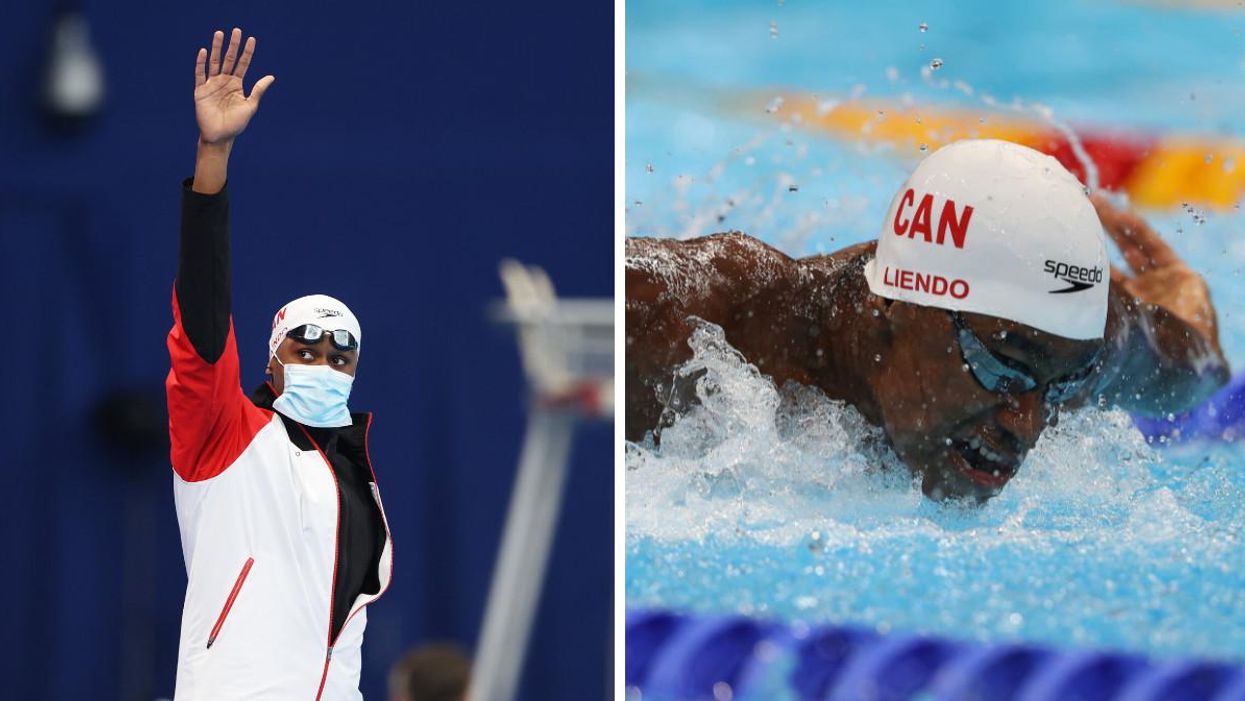We Spoke To A Canadian Olympic Swimmer About What He Eats In A Day & Here’s What He Said
Wondering what it takes to eat like an Olympian?
When Olympic athletes took to TV screens around the globe, many Canadians were thrilled to see the red and white uniform of Team Canada take podium after podium. As Canada's best were out smashing records, winning medals and even toppling some long-undefeated foes, you might have sat at home and wondered just how an Olympian does it.
There's a lot that goes into getting athletes to perform at their (and the world's) best, including things like training and diet.
One of those Canadians is Toronto-born Joshua Liendo. At the Tokyo 2020 Olympic trials, Joshua broke the Canadian record for the 100-metre butterfly and won with two gold medals and silver, which qualified him for his very first Olympic Games, where he helped Canada come in fourth in the 4x100-metre freestyle relay.
As a high-performance athlete, Joshua is no stranger to planning what's on his plate for the best athletic performance. Narcity caught up with him to chat about diet, learn some surprising facts, and find out just what it takes to eat like an Olympian.
Since joining Team Canada in 2018 for the Buenos Aires Youth Olympic Games, Joshua has worked with a team nutritionist to craft a solid training and game diet consisting of carbs for energy, lots of veg for nutrients and lean proteins to fuel up. Complex carbs, like rice or pasta, and lean protein like chicken are staples of Joshua's on-season diet.
Getting enough protein is essential to key performance and building muscle. It turns out that not all protein is created equally, with different sources having different pros and cons. When looking to rebuild muscle after a morning in the lanes, Joshua might turn to complete proteins for replenishing and building new muscle.
"My favourite meal would have to be rice, beans and veggies with some oven-baked chicken. Some of the best advice I have received would be that I have to get protein and carbs within 30 minutes after a big race because it can ensure better recovery," Joshua shared with Narcity.
Research suggests that eating protein-rich whole foods as soon as possible after exercise is beneficial. What's also important is the source of that protein. Take, for example, 4 ounces of chicken versus one cup of cooked lentils. Chicken contains 28 grams of complete proteins while lentils come in at around 18 grams. Plant-based "chicken" products, which can sometimes have 20 ingredients or more, have around 17 grams of protein to offer.
When opting for simplicity and few ingredients, chicken can be an ideal protein source, as its versatility means it can be seasoned and served up in any number of tasty and healthy dishes.
A high-protein, singular ingredient food (and the most sustainable animal protein), chicken has no hidden ingredients and is a cost-effective way for professional and amateur athletes alike to meet their nutrient needs. Plus, it contains all nine amino acids that bodies rely on for absorption and digestion.
When eating well, Joshua notices a drastic difference in his performance. When he sticks to his nutrition plan, he feels his recovery gets an added boost. He also feels more alert, and a sharper mind leads to better practices and competition outcomes.
A typical day for the Olympian is full of full-body exertion, with morning practices and sometimes double-training days. On those busy days, Joshua relies on proteins like chicken that are loaded with nutrients like B vitamins, iron, zinc and magnesium, to ensure optimal muscle health for competing and for everyday functions.
For Joshua, some of those everyday functions include playing the guitar, double bass or cello, and following his favourite sport — American football. The ambidextrous swimmer also attends many meets (large swimming competitions for individual athletes), sharing, "I love doing meets and competing, and that is what drew me to the sport."

Whether you're gearing up for a big competition or just a busy week at the office, you can take a page out of the Olympian's book and plan a meal balanced with everything that gets Joshua to the finish line: "Before a big race, I will usually eat something along the lines of pasta, vegetables and chicken breast, making sure I get the right amount of carbs and protein to be ready to compete."
Make sure you're ready to compete — at home, in the office, after work — by selecting a protein that works for you and your needs.
For more information on Canadian chicken, visit the Chicken Farmers of Canada website and find them on Instagram or Facebook.
This interview has been condensed and edited for clarity.
